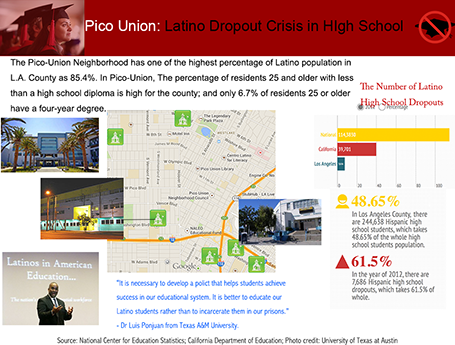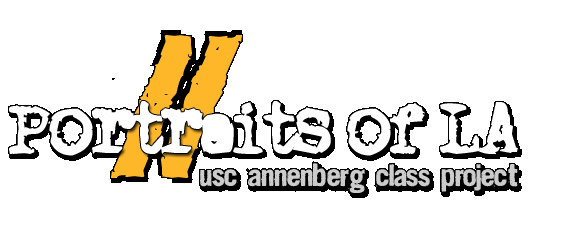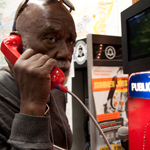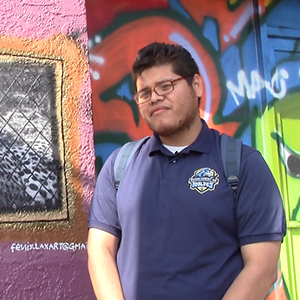The recovering economy and partisan disagreement has left Congress with tough decisions on where to spend money. Funding to after-school programming was one of the first areas the government cut, leaving thousands of public school students without vital activities. But communities have galvanized to provide kids with free opportunities in arts programs, with outlets like spoken word. Reporter Joshua Adams talks to poet and social activist Tom Earl about his youth open mic, why arts education is important, and the point of the poetry. (Click on photo for full story)
L.A. launched its very own 311 app one year ago, but Angelenos have been slow to adopt the new technology. Take a look at what the city is doing to change that.
Ben Caldwell, the creator of Kaos Network, says he is all set for Leimert Park’s new renaissance. The filmmaker, community activist and documentarian who has been at Leimert for the last 30 years, plans to focus more on his first love – filmmaking – in the future. This is an in-depth profile of the man who is fondly called by many as “the father of Leimert Park.”
By Peiwen Jing
In Pico-Union neighborhood, graffiti has a vicious reputation. Local people often relate them to damage and destruction, and even consider them as marks for street gangs’ territories.
But former tagger and now local charter school arts coordinator, Mario Cruz, is trying to use street culture as a teaching tool to help students in this neighborhood.
Holding the spray and tagging on the street was too familiar to Cruz, the 24-year-old graffiti artist. Cruz had been away of Pico-Union to Portland for three years. Now, he came back to the neighborhood, and started an art program in a local charter school to teach the teenagers in his neighborhood to do graffiti- in an artistic and marketable way.
“Most of the high school students in my school love graffiti,” said Cruz. “I just feel like to teach the kids how to actually become urban artists and put money into their pockets.”


This infographic showed the education level and high school dropout rate in Pico-Union according the statistics from U.S. Census Bureau and California State Department of Education.
Pico-Union used to have a woeful reputation for teenagers.
According to the statistics from the U.S. Census Bureau, Pico-Union was one of the most populous neighborhoods in L.A. County with the fourth lowest median household income. Two public high schools served the neighborhood; and it was far than enough for the population base.
Limited educational resources had made it hard for teenagers in Pico-Union to continue their academic journey. On the other hand, L.A.P.D.’s gang injunction showed there were more than 11 gangs terrorized in the neighborhood, such as the 18th Street and the Crazy Riders, which created a big chance for the teenagers to get distracted by gang activities.
Nevertheless, things started to change. Recent years, more and more young people like Cruz returned to the neighborhood with initiatives to help their peers.
Earlier this year, President Obama announced the new “Promise Zone” anti-poverty program. Part of the Pico-Union neighborhood was chosen as a place to test it out with financial support from the federal government.

In response to the possible support from federal government, more and more non-profit organizations began to offer the community different programs for helping young people in the neighborhood.
Click the pictures below to get to know these three young people who brought their initiatives to help their peers at Pico-Union.

Statistics from the U.S. Census Bureau showed that only 34 percent of the residents in Pico-Union had high school diplomas; and only 6.7 percent of the residents who were 25-year-old and older had a four-year degree. Both of the statistics were low for the L.A. County.
The lack of educated population in the neighborhood made it hard for the teenagers to find a role model in the field of academic. Ronnie Fernandez, a master graduate from USC School of Social Work, thought this absence of positive academic models would do harm to the community in the long run.
“In neighborhood like Pico-Union and Westlake, everything is visual,” said Fernandez. “When you act or speak like you are educated, they consider you a sellout.”
“We need to help these kids understand that the more education you have, the less bias you have."
View The help for the teenagers in Pico-Union in a full screen map
-->











